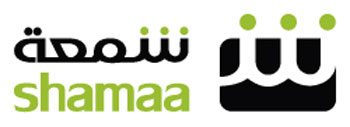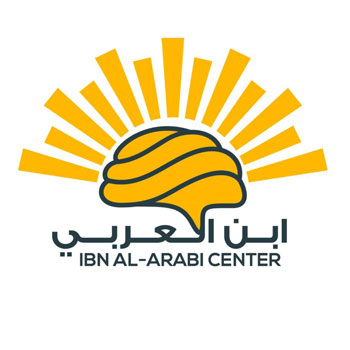واقع تعلیم اللغة العربیة في المؤسسات التعلیمیة الأفغانیة
DOI:
https://doi.org/10.56989/benkj.v3i3.145الكلمات المفتاحية:
اللغة العربیة، المؤسسات التعلیمیة، أفغانستان، تعلیم، تعليم العربيةالملخص
إقامـة دولة باسم أفغانستان تضطلع دائماً بتبعات خاصة نحو دین الإسلام واللغة العربية؛ فهي تحمل راية الثقافة الإسلامية، وإليها تتجه أنظار الأمم الأخرى، تقفوا أثرها لتتعاون معها في إحياء الثقافة الإسلامية المشتركـة، ثم هي تحمل زعامة الإسلام الدينية والثقافیة والاجتماعية. من حُسنِ الحظ يَشهد هذا البلد في السنوات الأخیرة صحوة علمیّة بالغة وازدهارًا باهرًا في مجال تعليم اللغــة العربية وتعلّمها ونشرها، ويشهد هذا العصر ظهور مؤلفات مستقلة حول حاضر اللغة العربية بل يشهد ظهور كتب متعددة حول اللغة العربية ورُبَما اعتبر بعضها بمثابة النواة الأولى للتأليف في مجال تعليم اللغة العربية لغير الناطقين بها، سواء أكان هذا السعى عن طریق المدارس الدينية، وأقسام العربية، وكليات اللغات والآداب، وكليات التربية، وكليات الترجمة الفوریة، وكليات الشريعة وأصول الدين، أم عن طریق المراكز والمعاهد والأكاديميات المنتشرة في أنحاء البلاد الأفغانية، والغرض من تعليم اللغة العربية وعلومها وآدابها في أفغانستان؛ أن يصبح كل طالب قادرًا علی التعبير الفصيح بهذه اللغة قولاً وخطابة وكتابة بلا حرج، انتهج البحث بطریقة المنهج الوصفي- التحليلي، المنطلق أولًا، من واقع تعليم اللغة العربية ثانیًا؛ بيان إزدهارها وأسالیب نشرها تعتمد الدراسة على المقابلات الشخصية التي اجريت مع بعض أعضاء هیأة التدريس في المؤسسات التعليمية الأفغانيـة وعدد من الطلبة في الأقسام الجامعیة للغة العربیة، ونتائج البحث تشير إلى أن طلبة الأفغان عندهم الشوق والرغبة لتعليم اللغة العربية ولدیهم الجدیة والسعي إلی تعلیم العلوم العربیة وقد يشتدّ الإقبال على اللغة العربية بعد أن تعلن الدول العرب حمايتها ودعمها الماديّ والمعنويّ لمجمع اللغة العربية في أفغانستان، حتی یسهل الطریق لتعلیم اللغة العربیة في مراكزها والذي يُعاني من مشكلات كبيرة وتحديات كثيرة في مجاله.
المراجع
الأفغاني، محمد سعيد بن محمد جان. (1971م). حاضر اللغة العربية في الشام، القاهرة : معهد الدراسات العربية العالية بجامعة الدول العربية.
باه، محمد سعيد. (د.ت). اللغة العربية والصراع الحضاري، (نسخة من كتاب المخطوط: مكتبة دمشق.)
الجاحظ، أبو عثمان عمرو بن بحربن محبوب الکناني. (1423هـ). البیان والتبیین، بیروت: مکتبة الهلال.
جارا، الحسن عمر الفاروق. (1999م). مقالـة (المسلمون والعالم، المجاعة الفكرية في إفريقيا) مجلـة البيان، السنة: 14، العدد 141، الصفحة 96.
غفوري، شريف الله. (2019م). مقالة الوضع الحالي لتعليم اللغة العربية في أفغانستان (جامعتي تخار وبدخشان نموذجًا)، مجلة البحث العربي، العدد2، إسلام آباد: جامعة العلامة إقبال المفتوحة.
غفوري، شريف الله. (2022م). مراحل النظام التعليمي في أفغانستان، مجلة الفاروق، العدد۲۵۲ شهر ینایر، كراتشي: مطبعة الجامعة الفاروقية.
النحلاوي، عبد الرحمن. (2007م). أصول التربیة الإسلامیة، بیروت: دار الفکر، ط25.
یوسفي، محمد. (2017م). "تدریس اللغة العربیة؛ بحث في الطرائق والمناهج"، نسخة الإلکترونیة، في الموقع التصفح، www.loghatona.net،.
بلیاف، ب.و. (1368هـ). روانشناسی آموزش زبان خارجی، ترجمة: امیر فرهمند پور، تهران: انتشارات سایه.
جالیسون، روبر ودني جیرار.( 1366هـ). زبان شناسی کاربسته وعلم زبان آموزي، ترجمه: الله وردی آذری ، مشهد: نشر دانشگاه فردوس.
حبیبي، علامه عبد الحي. ( 2002م). تاريخ افغانستان بعد از اسلام، كابل: انتشارات ميوند.
مهکي، ویلیام فرانسیس. (1370هـ). تحلیل روش آموزش زبان، ترجمة: حسین مریدي، مشهد: آستان قدس رضوی.
































 ElDjawda Soft
ElDjawda Soft